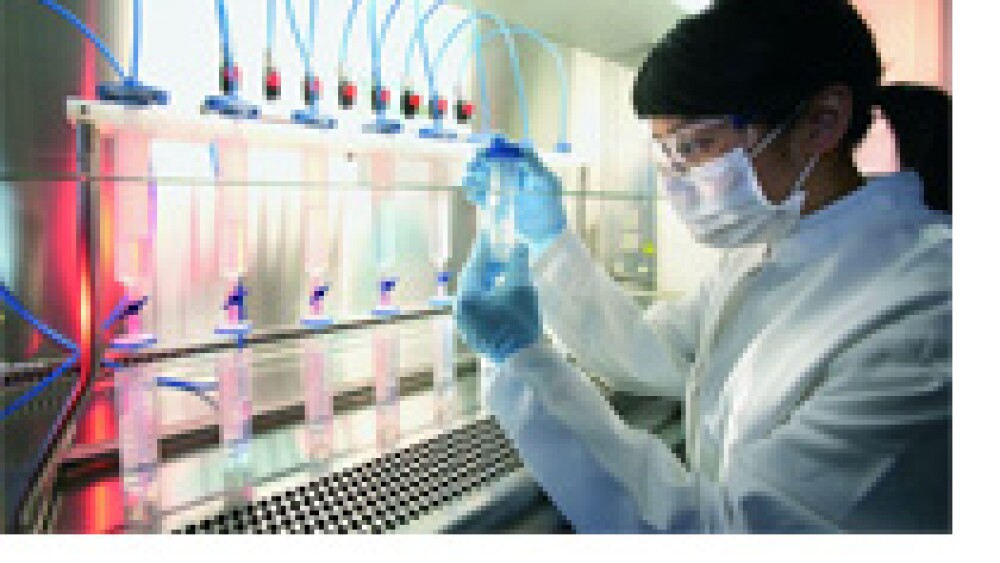March 18, 2015
By Riley McDermid, BioSpace.com Breaking News Sr. Editor
This is the first in a two-part interview that BioSpace conducted with Elaine Herrmann Blais, a lawyer who specializes in biotechnology law and the issue surrounding it. Blais, a partner at Goodwin Procter, is particularly interested in the legal issues surrounding biosimilars, as Big Pharma braces for the effects of a recent decision by the U.S. Food and Drug Administration (FDA) to allow Novartis AG to start making the nation’s first biosimilar drug. We talked with Blais about what she sees becoming the biggest issue for the biotech world’s new biosimilar paradigm
Question 1: What do you think are the main market developments for biosimilars that we should be paying attention to in 2015/16?
In the next couple of years, the main development will likely be an increase in the number of products entering the development and approval pipelines. The FDA has already accepted four applications for review under the new biosimilar product approval pathway as of this week, and it expects at least 10 new biosimilar applications by the end of 2015. Other FDA activity points to even further growth in the biosimilar market: as of April 30, 2014, the FDA had received 67 requests for an initial meeting to discuss biosimilar development programs for 14 different reference products, had held 55 initial meetings with sponsors interested in developing biosimilar products, and had received 22 investigational new drug (“IND”) applications (required for sponsors planning to perform clinical testing of a biologic in the U.S.).
Question 2: Do you think current approval pathways for biosimilars in the U.S. and abroad are sufficient or should they be tweaked or changed?
In this initial period, one of the greatest challenges attending the U.S. approval pathway is uncertainty about how the regulatory process will work in practice. The FDA has a substantial degree of flexibility in determining approval standards for biosimilar products, and uncertainty about how it will exercise that flexibility may discourage potential applicants. This uncertainty may fade with experience as the FDA actually starts reviewing and approving applications, and further FDA guidance documents may also work to overcome some of the present uncertainty about how the approval process will work.
Another source of uncertainty relates to the confidential, private exchange of information envisioned as part of the pathway to approval for biosimilar products. Often referred to as the “Patent Dance,” these provisions in the Biologics Price Competition and Innovation Act (“BPCIA”) set out a series of steps whereby the biosimilar applicant and the reference product sponsor exchange information about the biosimilar product application, and about any patents that might be at issue with respect to the proposed product. By this process, the applicant and reference product sponsor could expedite and narrow the scope of any patent infringement litigation. However, notwithstanding confidentiality provisions in the Act, concerns about confidentiality have led at least one biosimilar applicant to refuse to engage in the Patent Dance.
For other countries, one of the major weaknesses has been the lack of a clear process (or any process) by which a biosimilar product can be certified as “interchangeable” with a reference product. For example, in the EU (as in the U.S.), biosimilar products cannot be automatically substituted for the reference product in the same way that generic small molecule drugs can be substituted for brand-name reference products. However, whereas the U.S. pathway provides for an “interchangeable” status that could lead to automatic substitution, the E.U. regime does not. This has left many doctors unconvinced about the biosimilarity of approved products, and has consequently resulted in a slow market accrual for biosimilar products in that region.
BioSpace Temperature Poll
After Amgen Inc. said last week that it will close its South San Francisco facility acquired during its $10 billion buyout of Onyx Pharmaceuticals and will lay off 300 of Oynx’s 750 workers, BioSpace is wondering—will the number of mergers and acquisitions completed in 2014 mean a “streamlining” of biotech jobs in the Bay Area? Tell us your thoughts.





